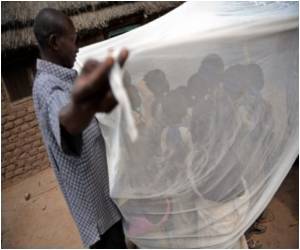
Drug-resistant malaria was found on the Thailand-Cambodia border eight years ago, and has since also been discovered along the Thailand-Myanmar border, according to scientists.
WHO regional director, Shin Young-soo, said countries must "urgently address this issue before we put at risk not only the fragile gains we have made in malaria control but also our goal of a malaria-free Western Pacific Region."
Countries in the Mekong region must "intensify and expand" operations to contain and eliminate artemisinin-resistant malaria, Shin said at a WHO regional meeting in Hanoi.
Drug-resistant malaria in Vietnam is mainly concentrated in three central and southern provinces, say health officials, adding that there are a number of key factors which make tackling the problem difficult in the communist country.
The population in the affected provinces are very poor, highly mobile, and have not widely embraced DEET-treated mosquito nets which could reduce malaria infections, according to media reports of a government conference in July.
Advertisement
Resistance to artemisinin does not prevent patients being cured, thanks to other partner drugs, but treatment typically takes a few days instead of 24 hours.
Advertisement
It killed an estimated 655,000 people in 2010, mostly African children, although mortality rates have fallen sharply over the past decades, according to the WHO.
Source-AFP









